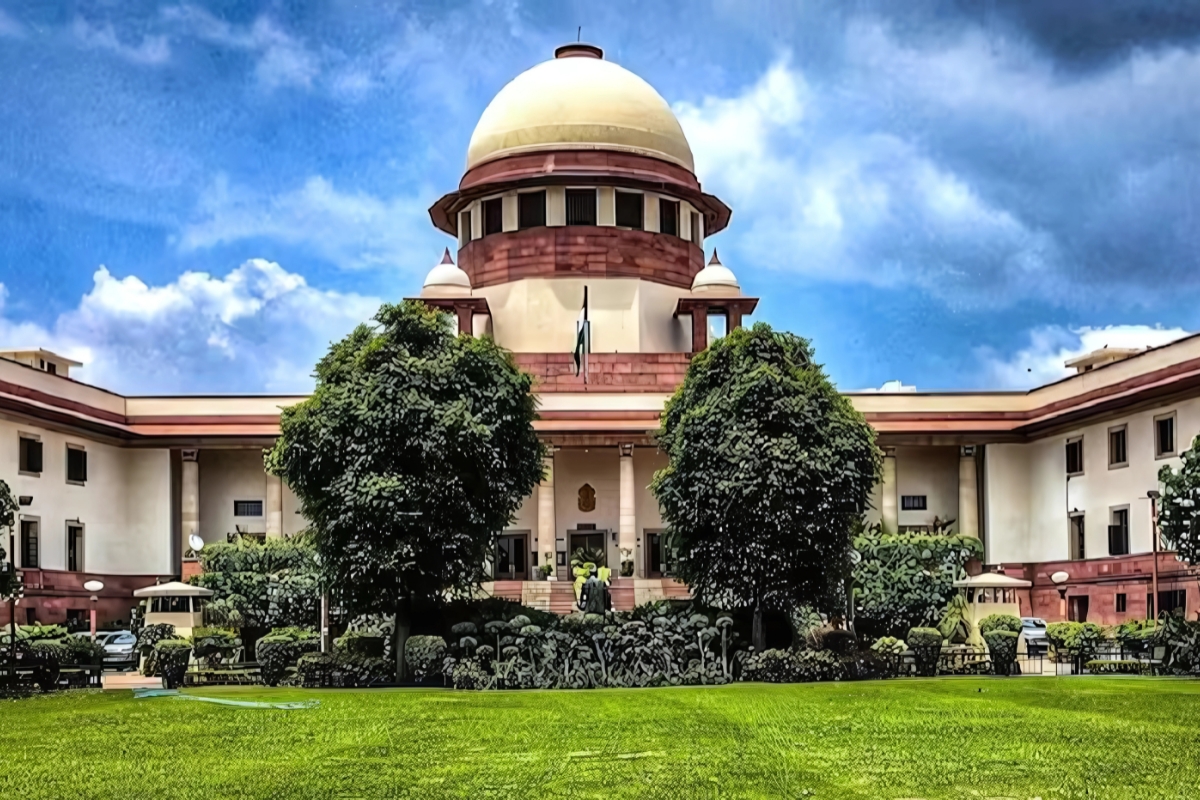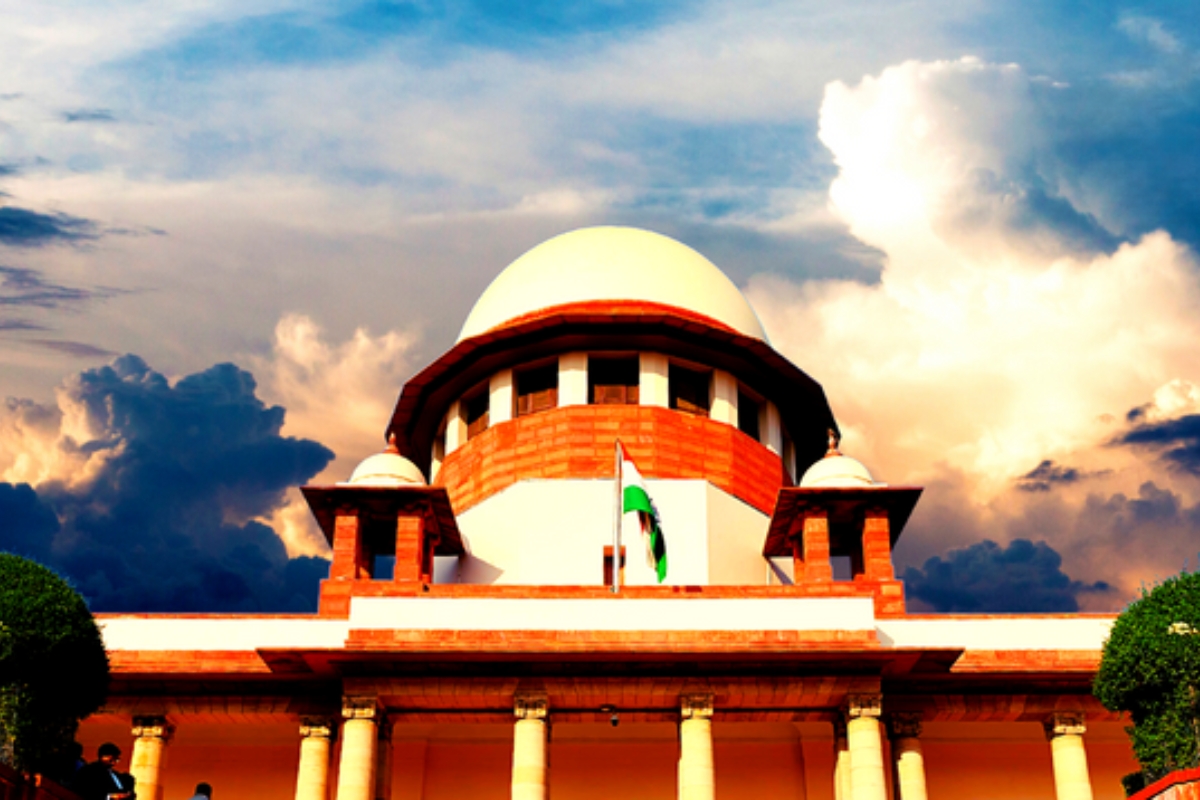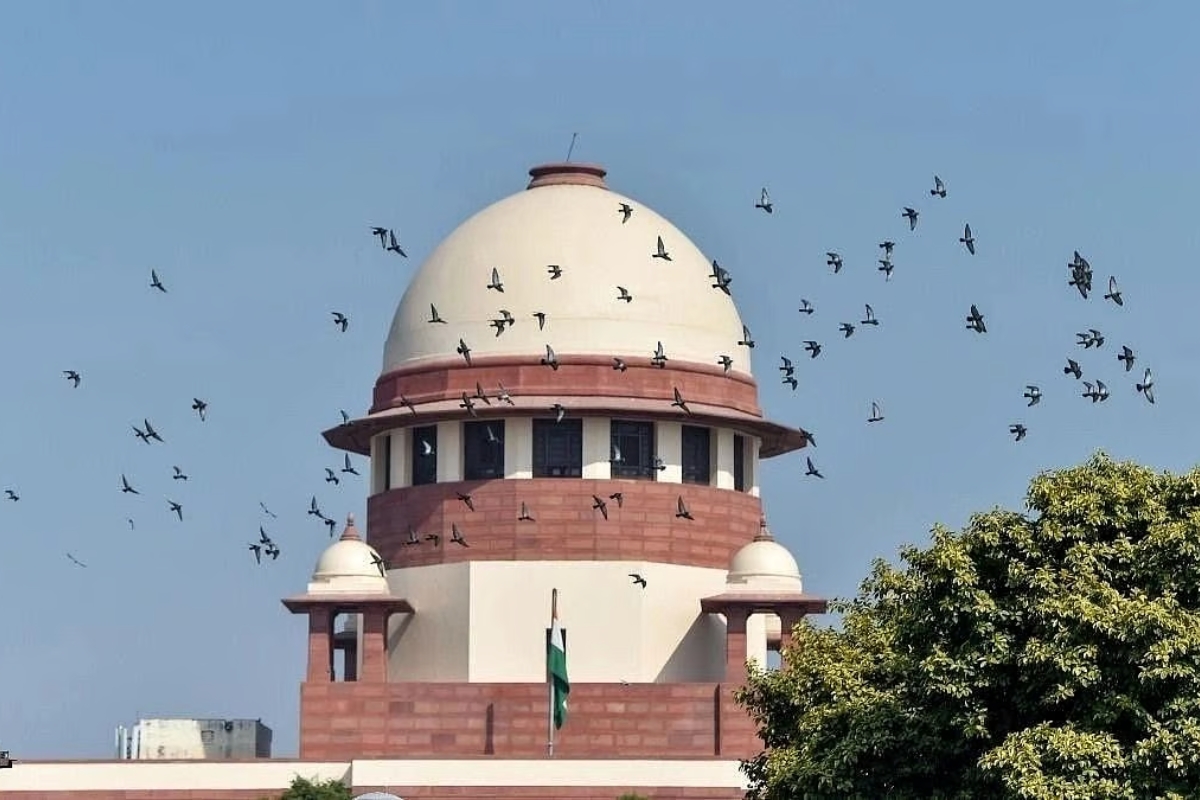Supreme Court of India: In a world where almost everything is going digital, it’s heartbreaking to imagine someone being denied the right to open a simple bank account just because of the way they look. Yet, this is the harsh reality that many acid attack survivors and visually impaired individuals face every day. The Supreme Court of India has stepped in with a powerful message: everyone deserves equal access to digital services, no matter what they look like.
A Brave Survivor’s Struggle Opened the Nation’s Eyes
It all started with a courageous acid attack survivor who approached a private bank in July 2023, hoping to open a savings account. But what she faced next was deeply unjust. The bank insisted on a live photograph verification process, a procedure that required her to blink her eyes.

This wasn’t just about one woman. It was about many others, silently struggling to access basic services. The petitions filed in the Supreme Court highlighted how countless people with facial disfigurements and disabilities are being denied access to essential banking services because of rigid and exclusionary KYC (Know Your Customer) procedures.
The Supreme Court Powerful Response in Defence of Dignity
The Supreme Court took these concerns seriously. A bench led by Justice JB Pardiwala and Justice R Mahadevan didn’t just listen; they took action. The judges declared that digital access is a fundamental right under Article 21 of the Indian Constitution, which protects the right to life and personal liberty.
The Supreme Court stated that digital verification systems must be inclusive. They must be designed to accommodate individuals with disabilities or facial injuries. The current system, the court noted, fails to treat everyone with equal dignity, and that is a violation of basic constitutional values.
A Call for Inclusive Digital Transformation
The judgment didn’t stop at just words. The Supreme Court issued 20 directions to the Central Government, urging them to revise and reform the digital KYC process so that it becomes accessible for all. This includes ensuring that private and public institutions alike follow these inclusive guidelines without exception.
The Supreme Court emphasised that if we allow digital systems to exclude the marginalised, we are only deepening the inequalities in our society. The digital divide cannot be allowed to become a new form of discrimination.
A Landmark Moment for Justice and Equality
This ruling is more than just a legal decision; it is a moment of justice for those who have suffered in silence. It tells every survivor, every differently-abled person, that they matter, and that their rights are just as important as anyone else’s. It’s a reminder that the true strength of our Constitution lies in its ability to protect the most vulnerable among us.

As the nation waits for the detailed judgment, one thing is clear: the Supreme Court has paved the way for a more inclusive and compassionate digital future. A future where everyone, regardless of their appearance or ability, can access their basic rights with dignity.
Disclaimer: This article is based on publicly available information and aims to present the issue in a simplified, human-friendly manner. It does not intend to substitute any official legal documents or statements. For detailed legal interpretation, readers are advised to refer to the official Supreme Court judgment once released.
Also Read:
Uniform Civil Code is Not Just Law, It’s Humanity, Says Karnataka HC
Supreme Court Says No Trial for Expired Lawsuits
Supreme Court Slams Overpriced Lawyers: Justice Must Be Accessible to All






